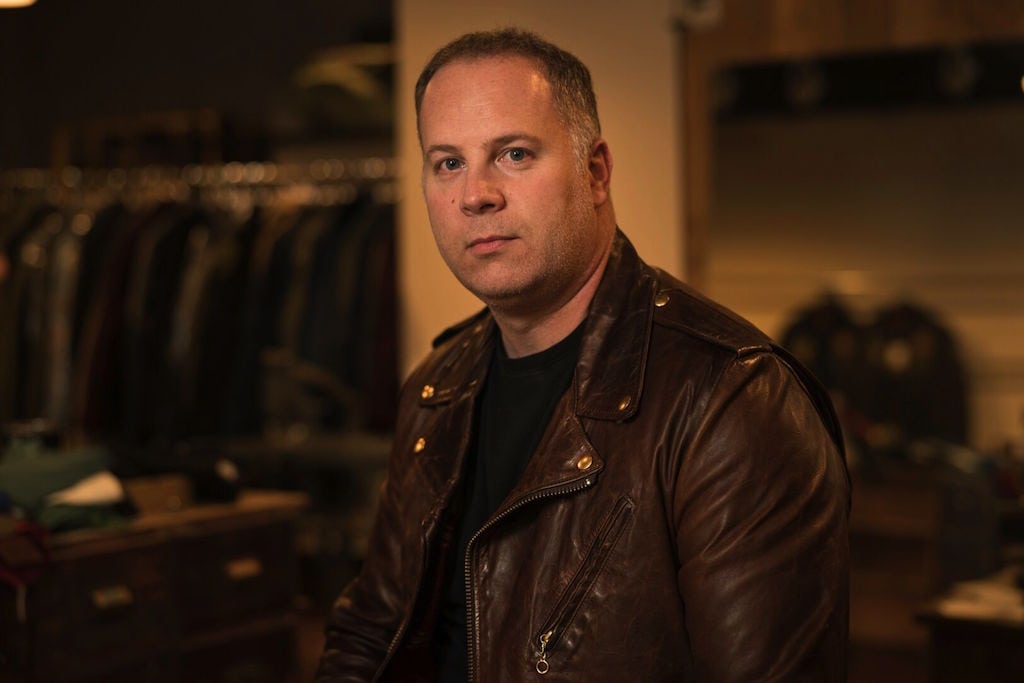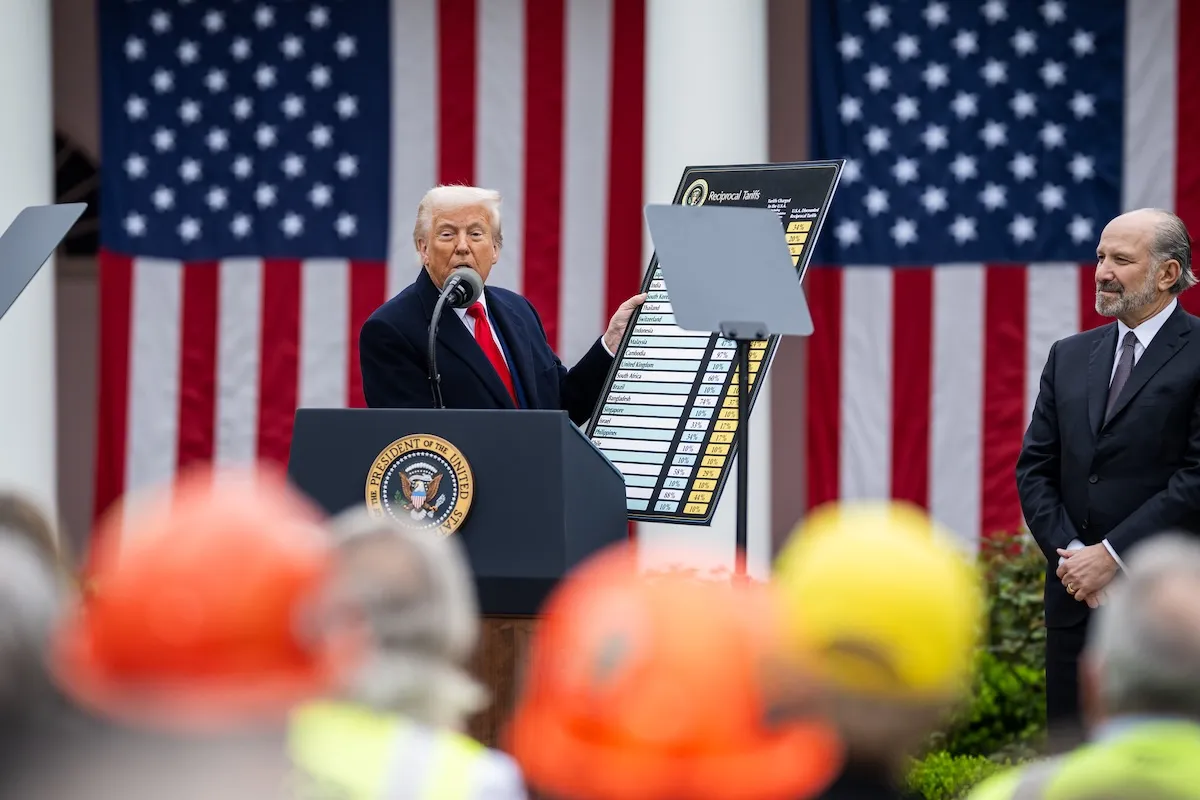Video: How Jason Schott of Schott NYC Is Driving the Brand’s Made-in-America Heritage

Skift Take
This sponsored content was created in collaboration with a Skift partner.
The Unbound Collection by Hyatt and SkiftX present The Freedom to be Extraordinary content series, which explores how breaking free from convention can lead to extraordinary success. These conversations will reveal how leading innovators and entrepreneurs approach creativity and how they’re embracing the freedom to be extraordinary.
Even if the name Schott NYC doesn’t ring a bell right away, you’re probably more familiar with the company than you’re aware of. Schott NYC is the brand behind the classic leather motorcycle jacket—the one worn by Marlon Brando, James Dean, Bruce Springsteen, The Ramones and other iconic American figures—and despite the odds, has kept the production of its jackets in the United States for over one hundred years. Jason Schott, chief operating officer of Schott NYC and fourth-generation family member to lead the company, spoke about how the company and the family behind it has embraced the idea of freedom throughout its history.
Schott NYC was started in 1913 in New York’s Lower East Side neighborhood by Jason’s great-grandfather Irving Schott and his brother Jack. The two began making fur-lined raincoats and selling them door-to-door, eventually opening up a factory and store of their own. The brothers soon revolutionized the way jackets were made—they were the first to insert zippers into their jackets, which led the U.S. Air Force to commission them to create pea coats and bomber jackets for the country’s soldiers in World War II.
Following the war, the classic leather motorcycle jacket, also known as the Perfecto, became all the rage with America’s youth after Marlon Brando sported it in The Wild One. Decades later, Schott NYC’s jackets are still associated with the idea of “the rebel.” As Schott explains, “There was such a strong connection between that jacket and the bad boy mentality, that the jacket was banned from schools. However, as we now know, there was really no stopping it. It’s forever been the uniform of someone who wants the freedom to express themselves in their own way.”
Despite the challenges of modern domestic manufacturing, while most of their competitors have moved production overseas, Schott NYC has continued to thrive as a family-run business, and the majority of their products are still manufactured in the United States. Over 200 leather jackets and other apparel items are produced in its Union, New Jersey factory, and the company still uses a similar process, as well as much of the same machinery, used by the founding brothers. While keeping manufacturing in the U.S. can be costly, Schott explains that money that would otherwise be put toward marketing initiatives are instead invested in production and craftsmanship of the product. “Instead of focusing on marketing, we tend to let the product speak for itself,” he says.
There are currently about 100 operators who work at the Schott factory and create the jackets piece by piece. The company uses U.S. domestic cowhide—again illustrating the importance it places on the superb quality of its materials—which is individually inspected and cut by hand one piece at a time. Schott explains the value of the company’s workforce, which would likely be difficult to truly replace if the company were to move overseas. “There are 30 to 35 steps that a jacket will go through throughout the factory, so there are a lot of people, and decades of experience, involved in the process,” says Schott. “Our people work really hard, and there’s an incredible amount of knowledge and skill here that is really rare to find.”
While Schott is a family business, leadership isn’t easily handed over to anyone in the family—Schott started out by sweeping the floors and loading trucks. After a stint as an accountant for five years, he returned to the company. According to Schott, the family has avoided nepotism by making sure that every family member involved in the company brings something new to the table. “We have an unwritten rule that in order to become a family member working in the business, you have be employable somewhere else and bring us new skills,” he says. “Now I can’t imagine doing anything else.”
As for the future of Schott, he says he hopes to see many more generations to come, as well as a lot of new twists on old ideas. He says, “We’re sewing our names into these jackets, so it comes with a tremendous sense of pride and responsibility to make sure that people always have an emotional connection to them.”
The Unbound Collection by Hyatt
This content was created collaboratively by The Unbound Collection by Hyatt and Skift’s branded content studio, SkiftX.




